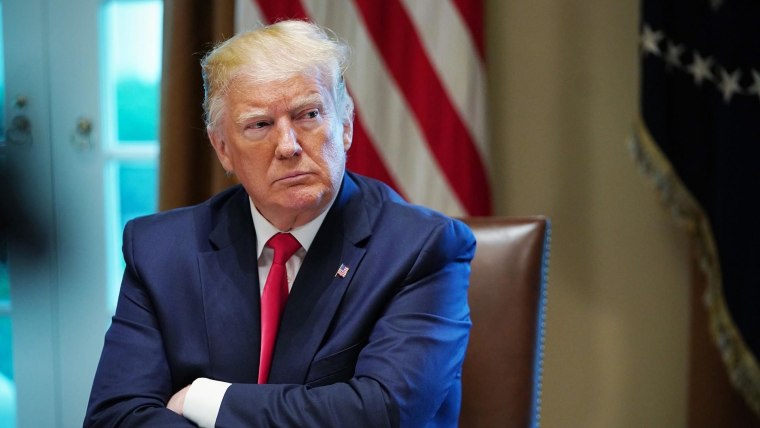After the U.S. House formally approved a measure to proceed with the impeachment inquiry, House Republican leaders held a press conference at which a reporter asked, "Will you all go on the record and say the president did nothing inappropriate?"
There were dozens of GOP lawmakers on the stage at the time. They collectively responded, "Yes."
This was, of course, a ridiculous posture, but more importantly, it was unsustainable. The evidence of "inappropriate" actions in Donald Trump's Ukraine scandal was, and is, overwhelming. Some Republicans may see value in playing make-believe and pretending the entire controversy is a mirage, but the vast majority of fair-minded observers will know better.
And that realization has led GOP officials to start exploring alternatives. Some in the party have been willing to acknowledge the abuses, but they insist they don't rise to an impeachable level. Others in the party are intent on trying to undermine the witnesses who've testified as part of the impeachment inquiry. A few have suggested just letting voters resolve the questions in the 2020 elections.
But as the Washington Post reported overnight, some congressional Republicans are prepared to acknowledge there was wrongdoing while pinning the mess on some fall guys.
House Republicans' latest plan to shield President Trump from impeachment is to focus on at least three deputies -- U.S. Ambassador to the European Union Gordon Sondland, Trump's lawyer Rudolph W. Giuliani, and possibly acting White House chief of staff Mick Mulvaney -- who they say could have acted on their own to influence Ukraine policy.All three occupy a special place in the Ukraine narrative as the people in most direct contact with Trump. As Republicans argue that most of the testimony against Trump is based on faulty secondhand information, they are sowing doubts about whether Sondland, Giuliani and Mulvaney were actually representing the president or freelancing to pursue their own agendas. The GOP is effectively offering up the three to be fall guys.
I will gladly concede that this is marginally better than pretending there was literally no wrongdoing of any kind -- a position House GOP lawmakers were willing to take as recently as last week.
But the idea that Republicans can protect Trump by throwing Sondland, Giuliani, and Mulvaney under the bus still isn't going to work.
At the heart of the gambit is a familiar argument from previous scandals involving Republican White Houses: the guy at the top was out of the loop. Sure, lines were crossed, mistakes were made, and other passive-voice phrases were used, but the official behind the desk in the Oval Office is busy, and it's hardly fair to hold him directly responsible for the misdeeds committed by those around him.
We heard this during Watergate. We heard it again during Iran-Contra. Evidently, we'll hear it again now.
The trouble is, we already know, based on information that's publicly available, that Trump was directly involved in the entire scheme. Indeed, the White House went so far as to release a call summary that showed the president telling his Ukrainian counterpart, "I would like you to do us a favor, though" in the context of a discussion about military aid and the Republican's interest in domestic conspiracy theories.
Trump also stood on the South Lawn of the White House and urged Ukraine to launch an investigation into a domestic political opponent.
For that matter, as Greg Sargent and Jon Chait noted separately, Trump personally directed administration officials to withhold the Ukrainian support as part of the broader scheme.
It's impossible to argue that Trump was out of the loop when he's at the center of the loop.
